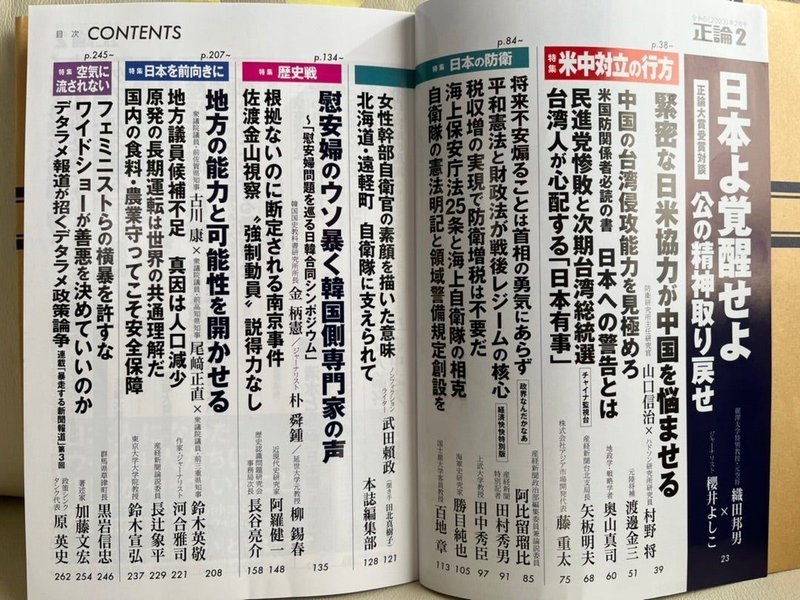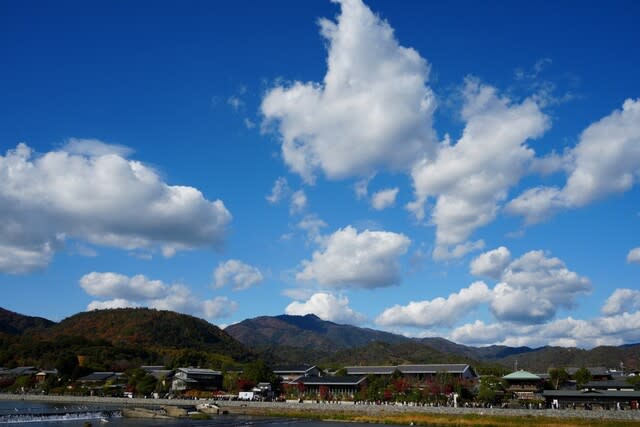The following is from Ms. Sakurai Yoshiko's serialized column that marked the end of the Weekly Shincho New Year's extra-large issue released on December 27, 2022. December 27, 2022.
This article also proves that she is a national treasure, as defined by Saicho, the supreme national treasure.
It is a must-read not only for the Japanese people but for people worldwide.
In 2023, Japanese people should be wise and strong.
The war of aggression against Ukraine will not stop until Russian President Vladimir Putin gives up the battle.
Following Ukrainian President Selensky's visit to the United States at the end of 2022, it has further strengthened its resolve not to let Ukraine be defeated.
The way to end the Ukraine war is to defeat Vladimir Putin and force a ceasefire.
As the war in Ukraine dragged on and Mr. Putin fell, Chinese President Xi Jinping consolidated his position as de facto emperor for life in October 2010.
Immediately after that, he began to make his way around the international arena.
Since the end of October through mid-November, Xi has met with leaders from Vietnam, Germany, the United States, France, the Netherlands, South Africa, Australia, South Korea, Senegal, Argentina, Spain, Indonesia, Italy, the Philippines, Singapore, Japan, Brunei, New Zealand, Papua New Guinea, Chile, and Thailand.
The series of summit meetings were set up as if Xi, the alliance's leader, was receiving tribute from each country.
The leaders of each country entered the press conference room where Mr. Xi was waiting with a big smile on his face, and they walked up to him and shook his hand.
Under such a production, Mr. Xi skilfully sorted countries into those to be taken in and those to be warned of, plotting all kinds of divisions.
He divided the Group of Seven (G7) industrialized nations by being tough on Canada and soft on Germany, and he was tough on the U.S. and the U.K. and soft on Australia.
It was done to crack the AUKUS (Australia-U.S.-U.K.) system.
China's ultimate goal is to create dissonance within the U.S.-led camp and to kill U.S. influence.
Against this backdrop, the Kishida administration released three documents on security issues on December 16, which struck a nerve with China.
Although the three strategic documents still have apparent shortcomings and systemic flaws, they represent the spirit of former Prime Minister Shinzo Abe's desire to "Take back Japan!"
It is a landmark document that changed postwar Japan.
It looked away from the harsh realities of international affairs and regarded the international community as a temple of goodwill and friendship.
The document effectively stated that the "peace-loving international community" indicated in the preamble of the Constitution did not exist and declared that the Japanese nation would focus on looking at reality.
Various measures to strengthen military power directly conflict with Article 9, Paragraph 2, which states that Japan has no war potential and denies the right to belligerency.
"Aggressor country," "Be careful with your words and deeds."
China must have found Japan's transformation and its 2% of GDP target for defense spending extremely offensive.
At a press conference on the same day, it called Japan an "aggressor nation" and ordered Japan to "refrain from words and deeds.
On the following day, the 17th, the Chinese People's Liberation Army (PLA) conducted a large-scale military exercise on the Liaoning aircraft carrier in the sea south of Okinawa, threatening our country.
It is the reaction to the mere release of the three strategic documents.
Suppose Japan tries to strengthen its military power further to become a decent and normal country and realize the revision of the Constitution.
The Xi administration will surely resort to a more robust intimidation campaign in that case.
But how fragile is Xi's footing?
He cannot even mourn the ever-increasing number of dead in Corona.
Beyond the Corona response, no one can predict when the blank slate movement of young people who have fundamental doubts about the CCP's rule itself will erupt again.
There is no guarantee that the first wave of demonstrations will end the significant protests to force Xi, who has created a permanent dictatorship in form but is still in absolute power, to step down.
It is impossible to bolt on the human heart and silence it forever.
Still, Mr. Xi is eager to make the world follow his lead and color it with the colors of the Communist Party of China (CPC).
Convinced that the iron rule of the Communist Party is superior to the liberalism of the U.S., he plans to replace the U.S. as the dominant power.
They lure the leaders of weak states into the swamp of corruption with the attitude that they will disregard any vices as long as they follow China.
Corruption, backstabbing, suppression of the people, and murder of opponents are tolerated as long as they are loyal to the Communist Party and Xi.
China has more leaders than a few in poor countries without a sense of nationalism or pride.
Therefore, the number of countries that support China is likely to increase.
But that does not mean that we can meekly accept the societies and countries that will emerge that are steeped in Chinese values.
At this juncture, we must make up our minds and fight.
What about the United States, which China is most wary of and views as its enemy?
They are suffering from deep divisions.
American society is divided on all fronts, including wealth, religion, race, gender, and education, and far-left liberal values that deny even the founding spirit of the United States are spreading.
Biden took office two years ago promising to bridge the divisions in the United States, but the divisions have deepened in the opposite direction.
Still, there is no denying the reality that the U.S. is supporting the liberal camp in the West.
The U.S., the world's most powerful nation, has so far allocated nearly 3 trillion yen in Japanese yen to support Ukraine.
The United States faces Russia and is waging an economic war, positioning China as its most significant challenge.
An aggressive stance toward China is a firm foundation of U.S. diplomacy shared by Democrats and Republicans.
Strong Will to Defend the Homeland
Japan's role in the conflict between the United States, China, and Russia is far more significant than we think.
Japan's natural responsibility is to stand by the U.S. side or deepen cooperation with European nations to deter the challenge of authoritarian China and Russia to the free world.
However, even if we cooperate with the United States or join forces with Europe, we have yet to be able to correct the distorted structure of Japan compared to the rest of the world.
The Constitution.
Japan is lagging in many aspects of national defense because of the Constitution that binds the Self-Defense Forces and limits them to a framework that is not a regular military force.
The Ukrainian people are desperately resisting Mr. Putin's aggression.
If the war situation tilts further to Russia's disadvantage, Mr. Putin could use nuclear weapons.
Still, Ukrainians are fighting.
China is more intelligent than Russia, and I don't want Mr. Xi to do what Mr. Putin did.
But what will we do in the unlikely event that he does?
Can we fight and defend our country the same way the Ukrainians do?
To disregard this question is irresponsible for adults in Japan.
The three strategic documents on this issue are the fastest way to strengthen Japan's military power and avoid such a crisis.
It is a plan to build maximum deterrence, or military power, to prevent China from invading militarily.
The moment war is provoked, it is a defeat for the warring parties.
The people's lives will be lost, and the land will be devastated.
Therefore, war must not be allowed to occur.
To this end, we must communicate our will more clearly than ever to the nations and peoples who initiate war.
We will not allow anyone to touch Japan; we will stop them, fight back, and drive them back.
It is crucial to make it clear at every turn that Japan and its people have a strong will to defend the nation and will not give in.
We must have the strength to back up our words.
It is the military power for that purpose and the three strategic documents.
But that's not enough.
We bring Japan, which is lagging behind the rest of the world, to the same level as other countries; constitutional reform is necessary.
It is the most important issue of 2023.












































